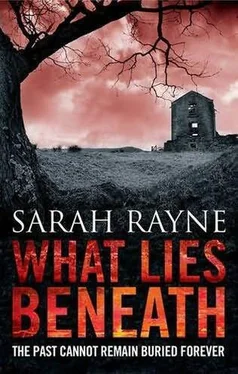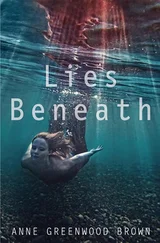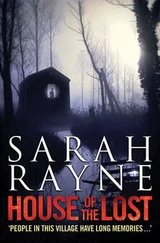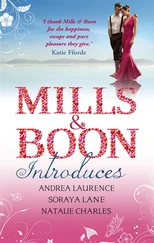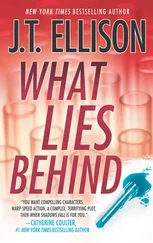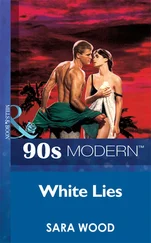She handed out the coffee, collected the cups afterwards, and tidied up the leaflets the choirmaster had given out. She talked to some of the people who had come along, and thought it was a pity the faithless English tutor was not here to see how unconcerned she was about him and how well she was doing on her own. People were smiling at her quite approvingly, which put paid to the English tutor’s last hurtful jibe about her having the face of a cat and a personality to match. A man did not want to wake up and find a scraggy alley-cat on his pillow, he said, and Amy had only just managed to get out of the bedroom before crying. She knew she was not especially pretty, but she had hoped she was interesting-looking. She did not think she had the personality of a cat, and she hoped the English tutor ended up with some vapid empty-headed chocolate-box.
Quite a lot of people were at the talk, some of whom Amy vaguely recognized as library users, others who came to Gran’s house or to see Gramps about his opera rehearsals. But there was one she had not seen before: a shabbily dressed man who sat by himself, studying some notes with absorption. At first Amy thought he was a tramp who had wandered in to avoid the rain and drink the free coffee. One or two vagrant-type people came into the library sometimes during the day, pretending to read the newspapers, falling asleep and emitting meths and stale sweat. Clem always tried to get them out, but Amy thought they were as entitled as anyone to a read of the newspaper and a comfortable sit-down in a public library, and anyway, it was in the good old English tradition of coffee houses, if it was not in the even older one of soup kitchens.
The man tonight was not emitting meths or stale sweat, and he was making notes in the margins of the hand-out from the talk. Amy collected his cup and he looked up and said, ‘Thank you.’
‘Did you enjoy the talk?’
‘I did,’ he said. ‘I’m tracing the usage of Ambrosian plainchant, along with one or two other threads of obscure music and poetry.’
‘What kind of obscure?’
‘Connections between music and poetry and their surroundings,’ he said. ‘Tracking down links – trying to establish if a local legend has brought about the use or even the composition of a particular piece of music or a sonnet.’
His voice did not match his ragamuffin appearance, and he looked a bit like a Pre-Raphaelite painter or even a consumptive poet from the days when romance had a capital R. Oh God, not Shelley again. And he had talked about sonnets, as well.
But he said, ‘You’ve got an abandoned village here, haven’t you?’
‘Yes. Priors Bramley.’
‘I’m hoping to go out there when they finish disinfecting it,’ he said. ‘Oliver Goldsmith wrote a poem called The Deserted Village. It’s a bit idealized, but it’s full of thumbnail sketches of people going about ordinary lives in the eighteenth century, then having to leave because the land was “usurped”.’
He paused as if unsure whether to go on, and Amy said, ‘ “Usurped”? Enclosure? Some feudal overlord yomping arrogantly across the fields, snaffling people’s cottages to build a palladian folly or something?’
He smiled, but he said, ‘Yes, something like that.’
‘With Priors Bramley it was a government who did the yomping in order to build a motorway,’ said Amy. ‘Only then they sloshed a load of corrosive stuff everywhere and poisoned the place for years. Some people still call it the Poisoned Village.’
‘That’s what interested me. Goldsmith has a line about poisoned fields in his poem. That’s why I thought I’d stay for a few days – I’d like to see if anything about Priors Bramley mirrors Goldsmith’s fictional Auburn.’
‘Art imitating nature,’ said Amy. ‘Or the other way round.’ And then, because it was Priors Bramley they were talking about and she had spent the last few days buried in the place’s history, she said, ‘Did you find any other echoes?’
‘As a matter of fact there is another one,’ he said. ‘An old, virtually vanished opera called The Deserted Village . It’s by an Irish composer from the mid-to-late 1800s – John William Glover, he’s called – and he based it on the Goldsmith poem. But the curious thing is that there’s a recording of that music here in this library. It’s old and very scratchy, and it’s not the whole opera, of course – just a kind of potted version. Maybe even only the overture. But whatever it is, it’s full of harmonies that chime with the cadences of the poem and it’s really surprising to find it in any library… Sorry, I’m getting carried away, and it looks as if they’re waiting to lock up. Do you work here?’
‘Holiday job,’ said Amy.
‘Student?’
‘Second year at Durham.’
He nodded as if this was an acceptable explanation, thanked her again, and went out.
‘He’s been into the library once or twice,’ said Clem, when questioned about the man next morning. ‘He’s staying at the Red Lion, I think. Some sort of music researcher, somebody said. Unusual chap, isn’t he?’
‘I didn’t notice,’ said Amy, burrowing into her photographs.
It was an odd feeling to see the faces of people who had lived in the village – the deserted village, thought Amy, remembering the conversation about the poem. Some of the wartime photos were interesting as well. Amy liked seeing the hairstyles of the females, and the clumpy shoes, and she liked the paragraphs snipped from the Bramley Advertiser as well. They told how you could rub gravy browning on your legs to make it look as if you were wearing stockings, and what to do if the moth got into your woollen frock. There were reports of how the Spitfire Fund was getting on, grisly ‘Beware’ warnings to look out for German spies who might still be roaming the countryside, and what to do if people thought they had identified one. But to balance that were reports of the celebrations for D-Day and VE Day – street parties and victory marches. It looked pretty good fun. The Red Lion had provided most of the food for the celebrations, although Amy supposed it would have been fairly spartan, what with people’s cupboards being bare after six years of war. Spam and eggless cakes.
As she went back to Gran’s house for lunch, the air was misty from the spraying that was still going on down in Priors Bramley. People were finding it a bit irritating – it got in your hair and made everything damp. But there were only another few days left before the village would be ready to be reopened.
Entries From an Undated Journal
There are only another five days left.
I’ve tried every way I can to escape, but it’s impossible and I’ve run out of ideas. It looks as if I must acquiesce – sit here with my hands meekly folded and allow death to come to me. But it’s a nightmare prospect, and then there’s the matter of what comes after death – that’s even worse. Or is it? I’ve been a good member of the Protestant Church – none of your papist rubbish for me , thank you very much – and I attended church service on Sundays, well, most Sundays.
When I pace the length of this small room, and when I see how swiftly the clock ticks its way round to yet another midnight, I’m filled with such despair and fury I can scarcely contain it. Who would have thought it would end here? Who would have thought that hell-inspired journey in 1912 would lead to this?
I didn’t know the entire truth about that journey, not at the beginning. That was Crispian again. Devious, you see. I promise you, Machiavelli had nothing on Crispian Cadence. But if I’m honest – and since I’m staring death in the face it’s probably the time to be completely honest – long before we set off it had occurred to me that the journey could present a whole range of opportunities to get rid of him. Travel’s hazardous. People fall under railway trains or off ships. In foreign countries they’re poisoned by peculiar food, or they contract malaria or jungle fever. They’re bitten by venomous snakes or knifed by people with grudges against the British Empire. The list seemed endless. But whatever I did would have to be carefully planned and I still needed to be wary of the periods of darkness. I suspected I was not entirely in control at those times, and it would be no good doing something dramatic and unplanned during one of those spells. For one thing, it might fail. More to the point, I might get caught.
Читать дальше
